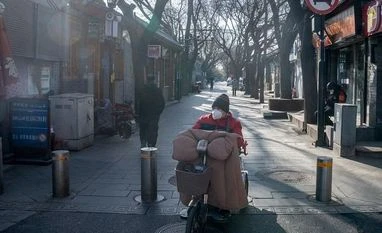A subsidiary of Taiwan’s Hon Hai Precision Industry will dispose of its indirect minority stake in China’s semiconductor giant Tsinghua Unigroup, the latest sign that Beijing’s chip industry is becoming increasingly isolated from the rest of the world.
Hon Hai’s China-listed Foxconn Industrial Internet (FII) will sell the shares to Yantai Haixiu IC Investment Center for not less than $772 million, according to an exchange filing.
Hon Hai said in a separate statement that it decided to sell the stake to avoid uncertainty because the investment still cannot be finalised. The company’s interest in the Chinese chipmaker, has triggered concerns from the Taiwan government because the state-backed Tsinghua Unigroup is one of the most prominent semiconductor companies in China.
China’s ruling Communist Party sees the self-governing island as a part of the mainland. A visit to Taiwan in August by then-Speaker of the House, Nancy Pelosi, raised tension between the two sides, with Beijing staging military exercises in the waters around the island. China has continued to send warplanes on provocative flight paths in the Taiwan Strait.
Opposed investment
Taiwan’s Ministry of Economic Affairs said in a statement that it will still fine Foxconn for investing in Unigroup without informing the government first.
Taiwan opposed the investment and wanted Hon Hai to exit the deal, according to a report by the Financial Times.
FII holds the stake in Unigroup indirectly through Xingwei (Guangzhou) Industrial Investment Partnership. Xingwei invested in Beijing Zhiguangxin Holdings, the parent company of Tsinghua Unigroup, via an affiliate, according to a previous filing.
Hon Hai, better known as Foxconn, is the biggest contract maker of Apple’s iPhones and operates several assembly plants on the Chinese mainland.
Beijing’s efforts to develop a self- sufficient chip supply chain are facing challenges, with the US and its allies about to jointly restrict Chinese firms’ access to advanced semiconductor technologies.
The US government earlier this week included dozens of Chinese technology companies on its Entity List, making it almost impossible for them to procure critical foreign components and ratcheting up a trade conflict.
US allies, including the Netherlands and Japan, are planning to adopt at least some of the new US rules as well, Bloomberg News reported.
Streets deserted in China cities as new Covid surge looms
Streets in major Chinese cities were eerily quiet on Sunday as people stayed home to protect themselves from a surge in Covid-19 cases that has hit urban centres.
China is in the first of an expected three waves of Covid cases this winter, according to the country’s chief epidemiologist, Wu Zunyou. Further waves will come as people follow the tradition of returning en masse to their home areas for the Lunar New Year holiday next month, he said.
The country has not reported any Covid deaths since December 7.
As mass testing has ended, it casts doubt on whether official case numbers can capture the full scale of the outbreak. China reported 2,097 new symptomatic cases on December 17.
In Beijing, the spread of the highly transmissible Omicron variant has already hit services from catering to parcel deliveries. Funeral homes and crematoriums across the city of 22 million are also struggling to keep up with demand amid staff shortages as workers and drivers call in sick.
At Beijing’s largest funeral parlour in Babaoshan, also known for handling the bodies of top Chinese officials and leaders, several hearses a minute could be seen entering on Sunday, while the parking area for private cars was also full.
Social media posts also showed empty subways in the city of Xian, while in Shanghai, the country’s commercial hub, there was none of the usual bustle in the run up to the New Year.
1 peak, 3 waves, 3 months
In Shanghai, authorities said schools should move most classes online from Monday, and in nearby Hangzhou most school grades were encouraged to finish the winter semester early.
In Guangzhou, those already doing online class as well as pre-schoolers should not prepare for a return to school, said the education bureau. Reuters
Unlock 30+ premium stories daily hand-picked by our editors, across devices on browser and app.
Pick your 5 favourite companies, get a daily email with all news updates on them.
Full access to our intuitive epaper - clip, save, share articles from any device; newspaper archives from 2006.
Preferential invites to Business Standard events.
Curated newsletters on markets, personal finance, policy & politics, start-ups, technology, and more.
)